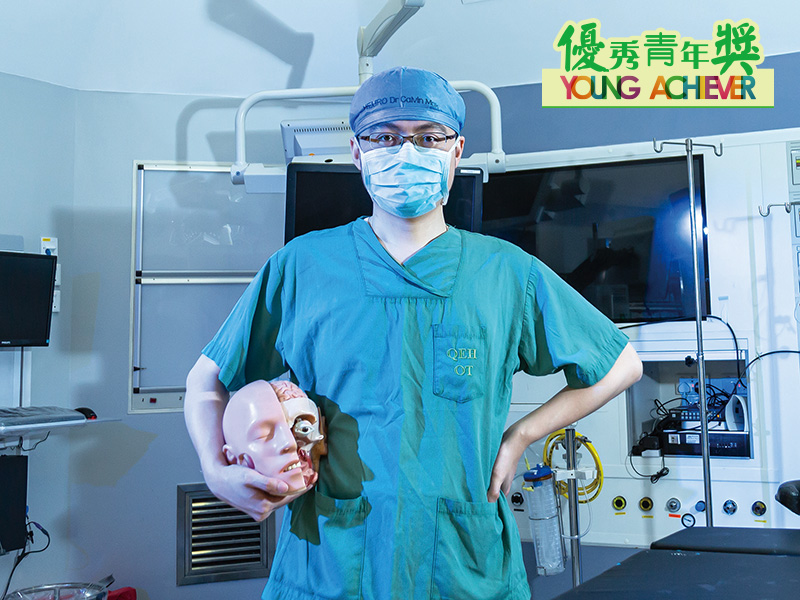Extensive research to unlock minimally invasive skull base surgery
Dr Mak Hoi-kwan, Calvin
Associate Consultant (Neurosurgery)/
Kowloon Central Cluster Coordinator (IT/IS)
Queen Elizabeth Hospital
Skull base surgery for patients with a brain tumour has always been one of the riskiest neurological surgeries. The surgery could be even more complicated if the tumour is located at the centre of the brain. For the well-being of patients, Dr Calvin Mak challenged himself on a journey to Paris in 2018 to learn about the skills and knowledge of contemporary minimally invasive endoscopic skull base surgery from international experts. In addition to clinical research, he spent every weekend in the cadaveric laboratory, putting in over 100 hours of hard work, to delve into the art of anatomy and surgical techniques.
Soon after returning to Hong Kong, Dr Mak spearheaded the introduction of the minimally invasive surgical technique in the Kowloon Central Cluster (KCC). With this novel technology, surgical instruments and endoscope could now be threaded through the patients’ nose or orbit to remove the tumour at the centre of the brain. As a result, the size of the wound and blood loss could be significantly reduced. It also helps improve the patients’ appearance and vision problems caused by the disease, allowing them to heal and return to normal lives more quickly. Widely acclaimed for his expertise, Dr Mak has been invited to be an instructor for many international courses.
Furthermore, to enhance patient care and effective treatment, Dr Mak has made reference to overseas practices and advocated the adoption of a cross-cluster multidisciplinary collaborative approach in the KCC and Kowloon East Cluster, with participation of specialists in ophthalmology, otorhinolaryngology and head and neck specialty to contribute their professional opinions.
As a technophile himself, Dr Mak believes that incorporating technology and medical informatics into medical service can significantly enhance efficiency. In collaboration with local universities to conduct clinical research, he has analysed data of over 3,000 patients who have experienced head injury using artificial intelligence method. This information provides valuable insights for physicians to predict surgical outcome accurately and facilitates clinical management, which eventually benefits a lot more patients in the future.
Groundbreakers
Every Second Counts
Enlightening the Next Generation
Mighty Support
Voices of Experts

